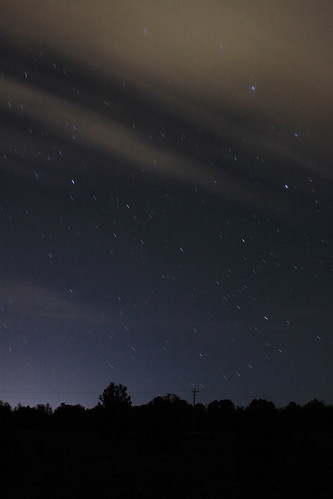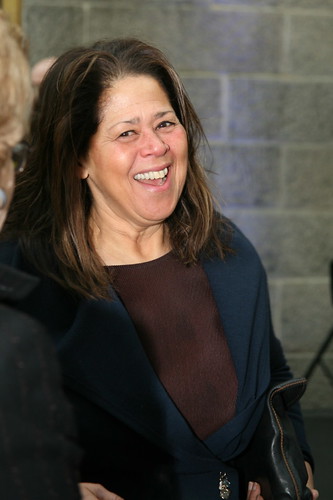Sometime last school year while I was working the front desk at our university Writing Center, an email appeared in my Inbox with the following message:
I'm an actor in [city in SE England] embarking on rehearsal of The Laramie Project. I've been reading your blog and enjoying your insight into the town. I'd love to chat online with you about the issues around the play, and also about your experience as a Wyoming native!I had gotten several requests for pictures thus far from different productions of TLP, but this was the first time anybody wanted to have an online exchange so far. I sent back a reply, and I found the cast member to talked to me (who asked for anonymity and so will be dubbed "Andrew") was a pleasant and curious fellow. What his production was seeking, he told me, was an attempt to get a sense of the larger backdrop of the play-- things like landscape, religion, and ethnic tensions, chiefly. We had an interesting time of it.
Andrew gave me permission to put these conversations online after their performance, and so, several months after the original performance, I'd like to do that now.
The first conversation focused on my favorite topic-- the landscape. Here was the first comment:
A few topics off the top of my head- the detail of everyday life in the town. Sensually- the feel of the air, the landscape, the wildlife, the smells. The interaction between students and Laramie natives. The lay of the land- are there the snowy range mountains to the West? Can you always see them? Or is it flat plains in all directions as far as the eye can see? The hours of life of the town - a rush hour of sorts? What's the public transport situation? Socio-economic problems? And then of course anything you would like to share on the events closer to the play- the media circus, the vigils, the trials...Dear Andrew,
 |
| Well east of Laramie, into the pink granite mountains. |
When I think of the landscape, I'd say that Laramie is characterized by an endless cobalt sky, yellow grassland plains, and a sharp delineation between them. The Medicine Bow range to the west is, due to elevation differences, usually no more than a dark smudge on a golden horizon. They really become visible only after a short drive into the open prairie towards Centennial. These are our snowy-capped mountains— not necessarily snowy for the full year, but they stay very cold. On the east side of town— where Matthew died— there is a steady rise in elevation up into a pink granite canyon and a slope terminating on the horizon into a pink granite canyon. This is our main mountain range, the broken boulders of Telephone Canyon sliding up towards Pole Mountain and the Continental divide. From our perspective, however, it is a continuous steep slope, cut by erosion, dotted with twisted pines, and still dominated by the prairie grass. It's beautiful in its own stark way, but quite different from the mountainous terrains most people think of. By most outside standards, it's a place of stillness, one of quiet.
 |
| The dominant Laramie plain. |
The town rhythms depend on whether you look at it from the inside or the outside. I cannot speak to today— I would have to let my brother Coyote do that— but to those who grew up in areas like this, the town felt a little like a city during school sessions and a very empty place during university breaks. Laramie has two main roads dividing the town, 3rd street and Grand Avenue, and at the conclusion of the work day, the university empties out and still clogs up the intersection every night. Sometimes my friends and I would go grab pizza at a diner on the corner of 3rd and Grand just to watch all the chaos when the lights changed.
To an outsider, the traffic and speed doesn't seem all that strange-- sparse and lazy; but for someone used to small towns, it felt surprisingly "urban" and crowded to me. In the summers, the town gets quite still, somehow slower and more intimate, more like a close-knit community. Since I've left, however, summers are taking on a life of their own; much like Fort Collins, the town has cultivated more of an artisan and craft culture, and now the quiet summers have markets and festivals which shut down the old downtown area with booths, music, food, and artwork. It's pretty neat.
 In my years there, Laramie had no real need for a bus system because I could bicycle anywhere in town in under 20 minutes, even in a blizzard. The new Wal-Mart and eastward expansion of the town has changed that, and I think there's now a single bus line running down Grand Avenue. (The Wal-Mart bought another newfangled concept to Laramie, and that was an acceleration lane. Most of us had never seen one.) That was one of the real charms to living in Laramie, as a person who grew up in a working-class family deeply tied to the land: I could pick a direction, and, in less than an hour on my bicycle, be the only person for a mile in any direction. After week after week of crowded dorm life and deadlines, I needed distance from our quasi-urban university life to reacquaint myself to the land. Laramie could provide me with that.
In my years there, Laramie had no real need for a bus system because I could bicycle anywhere in town in under 20 minutes, even in a blizzard. The new Wal-Mart and eastward expansion of the town has changed that, and I think there's now a single bus line running down Grand Avenue. (The Wal-Mart bought another newfangled concept to Laramie, and that was an acceleration lane. Most of us had never seen one.) That was one of the real charms to living in Laramie, as a person who grew up in a working-class family deeply tied to the land: I could pick a direction, and, in less than an hour on my bicycle, be the only person for a mile in any direction. After week after week of crowded dorm life and deadlines, I needed distance from our quasi-urban university life to reacquaint myself to the land. Laramie could provide me with that. In my head, I imagine that is exactly what Aaron Kreifels was doing that morning: he picked a direction and rode on his bike to get away from other people for a little while so he could just focus on a deep blue sky and that that three-inch strip of prairie running between his tires. And that's where he found Matthew.
I'll leave off there for today. Let me know what else you'd like to talk about, and I'll be happy to answer.
Regards,
Jackrabbit















